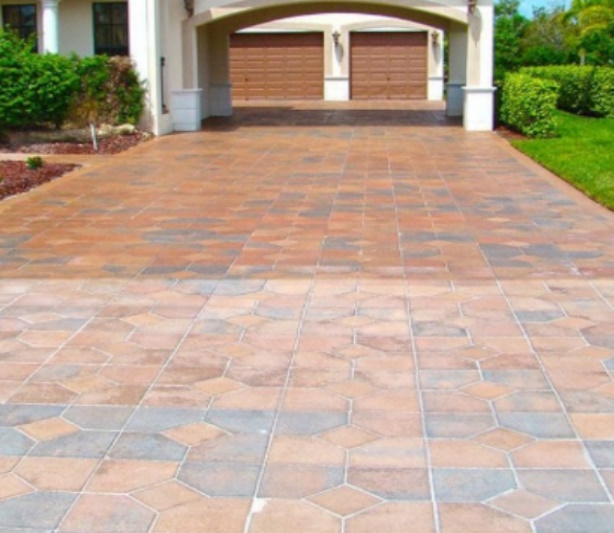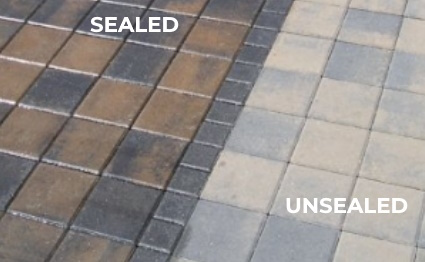PRO DRY
Hard Surface Sealing Brisbane
Experience the best clean and hard surface sealing sealing Brisbane residents trust
✓ Fast Drying Times
✓ Servicing All of Brisbane
✓ Stain Treatment Inclusive
✓ OH&S Compliant Procedure
✓ Residential and Commercial
✓ Removal of Dirt and Bacteria
✓ Professional Cleaning Solutions
✓ Indoor & Outdoor Hard Surfaces
✓ Professionally Trained Technicians
✓ Increases The Lifespan of Your Tiles
✓ Commercial Clean & Recapture System
✓ Tiles Stay Cleaner and Fresher for Longer
✓ Hygienically Cleans and Sanitises Surfaces
Our cleaning process exceeds the standards of AS/NZS 4233.1 and AS/NZS 4233.2 - High Pressure Water Jetting Systems
We also adhere to the following standards set by the Institute of Inspection Cleaning and Restoration Certification (IICRC): ANSI/IICRC S520 Standard for Professional Mold Remediation and ANSI/IICRC S220 Standard for Professional Inspection of Hard Surface Floor Coverings.
Experience The Best Hard Surface Sealing Brisbane Has To Offer
We here are at PRO DRY Carpet Cleaning believe we have the best hard surface sealing Brisbane has to offer.
Choosing an appropriate sealer for a concrete surface, pavers, or a driveway is a balancing act between aesthetics, performance, and budget.
It's important to remember that a good-quality sealer, applied correctly, can extend the lifespan of your hard surfaces and keep it looking fresh for many years. Therefore, it's worth investing in the best product you can acquire.
We can professionally clean and seal your hard surfaces to increase their lifespan, boost their appearance, and to make them function better.


Why Use A Sealer?
Using a sealer isn't necessary for concrete to function adequately. Still, the extra perks that come with applying a top-tier sealer to your patio, courtyard, or driveway will make the additional costs worthwhile. Here's why:
1. Not only does sealing a driveway boost its lifespan, but it also enhances the aesthetic appeal of decorative concrete by amplifying the colour and gloss.
2. Applying a sealer to a hard surface isn't complicated for us professionals; in most cases, a standard residential driveway can be cleaned and sealed in under a day.
3. Putting on a common sealer doesn't require costly equipment, but it does need to be done correctly.
Types of Sealers – Acrylic, Epoxy, Penetrating
Before initiating your job with us, it's important to familiarise yourself with the various types of sealers: acrylic resin-based, epoxy or polyurethane, and penetrating sealers.
Acrylic Resin-Based Sealers
Representing a cost-effective solution, these sealers deploy a thin layer of acrylic resin that ensures commendable performance. Some variants might contain added epoxy, polyurethane, or silicone to reinforce the product's durability. However, be mindful of the acrylic type; styrene acrylic, for instance, can be yellow under intense sunlight. A superior alternative is virgin or pure acrylic resin, which exhibits greater longevity and resists yellowing.
Epoxy or Polyurethane Sealers
Despite their higher cost, these sealers may not necessarily outperform others. Their application results in a thicker layer, which can be slippery - a potential hazard for patios or walkways. Moreover, they inhibit the concrete's ability to expel moisture, potentially forming a white haze between the concrete and the sealer layer.
Penetrating Sealers
Composed of specialty resins like silicones, siloxanes, and silanes, these sealers permeate the concrete and establish a chemical barrier against water, oil, and other contaminants. They're highly recommended for areas prone to staining, such as garages or driveways, and are explicitly labelled as "penetrating" sealers.
For optimal performance, seek out professional-grade sealers from concrete supply retailers. While cheaper alternatives from home improvement stores might provide satisfactory results, their lifespan tends to be shorter compared to the pricier, professional-grade alternatives.
This type of sealer is what we are going to use in the majority of cases as it's the best type of sealer for your hard surface.
What We Can Clean and Seal
Before initiating the sealing process, a hard surface must first be cleaned. This is to remove any contaminants on the surface and to prepare it for an even application of sealer. We can clean all of these surfaces below and your quote will include cleaning and sealing.
Concrete Sealing
Driveway Sealing
Paver Sealing
Quick Quote
Safety Considerations for Sealing
Ensuring safety is crucial when it comes to sealing driveways. It's important for the sealed surface to provide slip resistance once it dries. While most sealers designed specifically for driveways meet the slip resistance standards set by regulations, when dry, this does not reflect the potential slipperiness when wet.
The level of slipperiness depends on factors such, as the texture of the concrete and the thickness of the sealer. Generally, surfaces with more sealer resin and a high shine have a potential for being slippery. For example, if you have a surface with a thick film forming sealer it will become extremely slippery when wet. On the hand if you have an aggressively broom finished concrete surface with the same sealer it will be less slippery. To further reduce slipperiness, you can opt for a thinner sealer.
One way to enhance safety is by adding grit or an anti-skid additive, into the film forming sealer during application. This can provide traction and also minimize any potential hazards. There are options when it comes to improving slip resistance, on your driveway. You can choose from polymer or plastic grit well as white silica sand. However, it's important to note that these additives have their limitations in terms of effectiveness.
For safety you might want to consider using a penetrating waterproofing sealer of a film forming product. Unlike the latter this type of sealer doesn't create a finish, which means it won't make the concrete surface slippery. Before applying the sealer to your driveway it's always wise to conduct a test on a small and inconspicuous area under both wet and dry conditions. This will help ensure that the sealer meets your safety requirements.
Performance
It's crucial to understand that not all driveway sealants offer the level of performance and longevity. Within the product category there can be significant variations in how well they perform and how long they last. They can be especially useful for commercial premisses to keep their high-traffic hard surfaces in better condition.
The lifespan of a sealer can range from 1 to 15 years depending on factors such as the type of sealer used and the environmental conditions it is exposed to. The effectiveness and durability of a sealer depend heavily on the type and quality of the resin used in its composition.
Without delving into technical details, about the intricate chemical components and performance characteristics of driveway sealers it can be confidently stated that there is usually a direct correlation between cost and quality. Inexpensive sealers, commonly found in hardware stores typically do not offer the level of quality and performance as their professional grade counterparts available, at specialised concrete material suppliers. Therefore, it is advisable to invest in a high-quality sealer as it is likely to provide performance and increase the lifespan of your driveway.
Appearance and Gloss Levels
When choosing a sealer for your driveway, the visual outcome is a crucial factor to consider. The appearance of the sealed driveway can be influenced significantly by the gloss level and colour of the sealer. Like different paints, driveway sealers are available in various gloss levels ranging from no-gloss to high-gloss. The gloss level is scientifically measured on a standard scale of 1 to 100, with 100 signifying the highest level of gloss. Testing the sealer on a hidden area of your driveway is always a good practice to ensure the gloss level meets your expectations.
In terms of color enhancement, some differences can be noticed based on the type of sealer used. Solvent-based sealers often darken or amplify the color of the concrete more than their water-based counterparts. Additionally, the darker, wet look that many find appealing is achieved through sealers with a higher solids content. A higher solids content also results in a higher gloss level. Nevertheless, if you are seeking a natural, stone-like appearance for your stamped driveway, it is better to avoid high-gloss sealers. Instead, you may opt for color-enhancing sealers without creating an overly glossy, unnatural look.
The Gloss Level of a sealer is also directly associated with its type. Solvent-based sealers typically have a gloss level between 80 and 100, leading to a glossy or high-gloss finish. On the other hand, water-based sealers have a gloss level between 50 and 80, producing a matte to semi-gloss finish. Lastly, penetrating sealers have a gloss rating of 0, offering a no-gloss finish. It's worth noting that while some individuals prefer the wet look offered by higher gloss sealers, others may find it unnatural on stamped, coloured, or textured concrete surfaces, such as patios or pool decks.
Quick Quote
